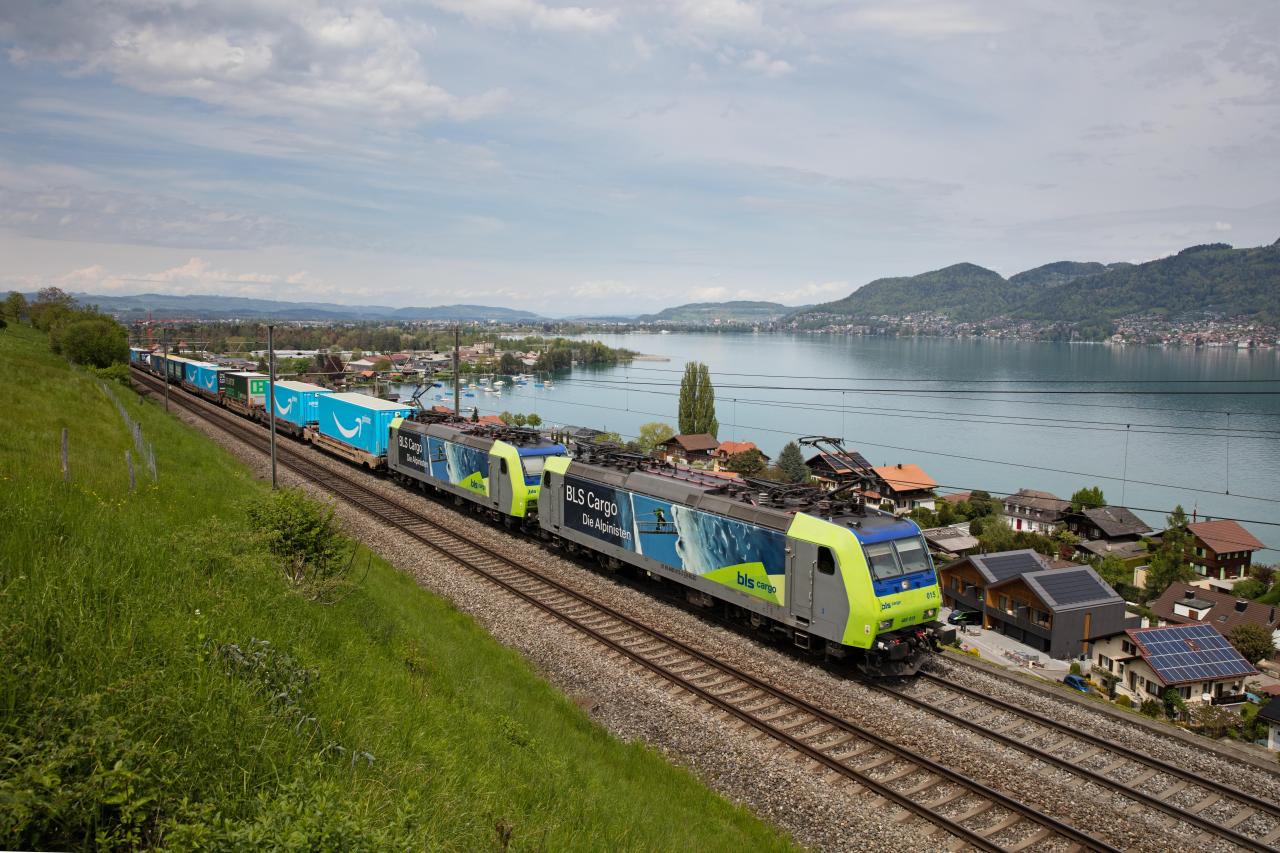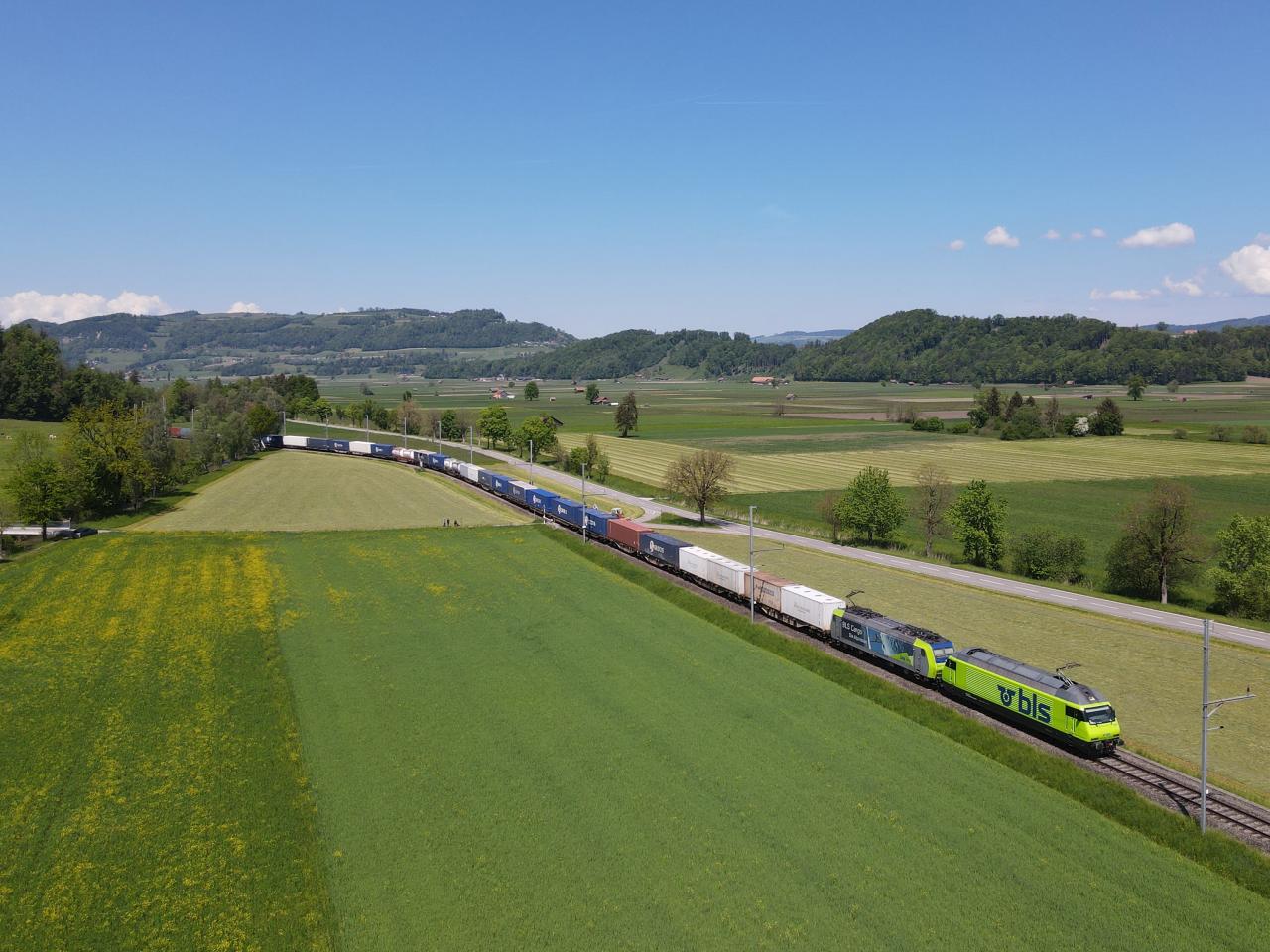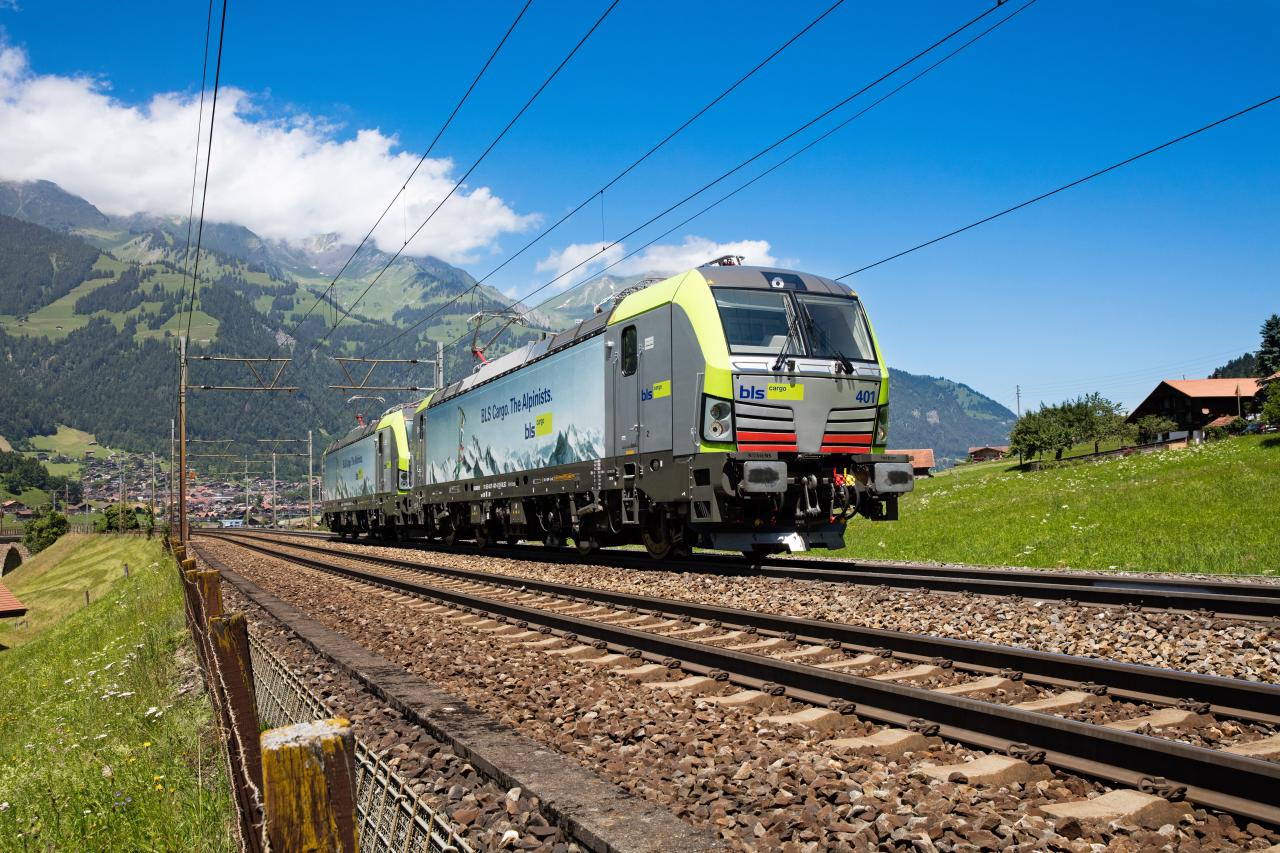The Swiss modal shift policy is enshrined in the Federal Constitution and enjoys broad public support. Rail's market share remained high at 72.7 per cent in the first half of 2023. This success story is due to a clever combination of various transport policy measures: consistent implementation of the liberalisation of rail freight transport, the construction of new and modern rail infrastructure for the NRLA (Lötschberg, Gotthard and Ceneri base tunnels and the 4-metre corridor) and operating subsidies for combined transport.
The economy and infrastructural environment jeopardise the relocation
Over the past two years, however, the successful model has begun to crack. After the euphoria surrounding the completion of the NRLA routes, the current market environment is extremely challenging and rail is once again losing traffic share. Combined transport and conventional transport are currently 10-15% below the previous year's level. Added to this is the low operational stability on the right bank of the Rhine, mainly in Germany. On certain routes north of Switzerland, more than half of all goods trains are running more than six hours late. Next year, further major construction sites are planned on the northern approach and routes will even be closed to rail freight traffic for months without the necessary diversion capacities being available. This leads to planned and also short-term cancellations of goods trains, which means a high financial burden for the rail transport companies. On the one hand, there is a lack of revenue and, on the other, high additional costs are incurred due to inefficiencies in the deployment of locomotive crews and locomotives.
Relocation policy only works with an efficient infrastructure
BLS Cargo is very pleased to note that the importance of the modal shift policy has been confirmed in the new report. We welcome the short-term support measures already taken by the federal government, such as the stabilisation of energy prices in 2024, the stabilisation of operating charges in 2024 and the inflation adjustment and further development of the HVF to maintain competitiveness. The HVF must be further developed in the coming years so that it can continue to exert its steering effect.
The challenge facing Switzerland's modal shift policy in the coming years is that it is heavily dependent on infrastructure operators and the efforts of neighbouring countries. The Federal Council states accordingly in the modal shift report: "Efforts for the coming reporting period must therefore be aimed primarily at first maintaining and then increasing the efficiency of the infrastructure for north-south rail freight transport. The infrastructure managers are primarily responsible for this. The primary objective is to ensure reliability and quality as key prerequisites for consolidating or expanding the market share of rail transport."
According to BLS Cargo, improvements are needed for the entire corridor in order to achieve the modal shift targets and to further strengthen the rail share of freight transport, as this is where the greatest obstacles lie. There is an urgent need for action in the following areas:
- Construction site coordination and compensation: Diversion capacities are needed in view of the planned extensive construction sites and route closures. From the point of view of the freight industry, construction may only take place if there are diversion options for at least 80% of the freight volumes. Adequate disruption handling and quality management must be ensured through improved international cooperation between infrastructure operators.
- Stabling and buffering facilities: The quality on the Rhine-Alpine corridor can be stabilised with available buffering facilities at border locations and on the Swiss Plateau. This makes it possible for goods trains to depart from the north and south "on schedule", even if delays are imminent. These stabling options should be provided for in the short-term track allocation for freight transport, especially on existing facilities, and should be financed in the event of necessary expansions.
- Stabilisation and reduction of track access charges: The track access charge for goods trains in Switzerland is significantly higher than in the other countries on the corridor. Rail energy prices, which are charged via the track access charge, must also be kept under review. Future adjustments to the traction current price should ensure that the rate of increase in the traction current price does not exceed the market price development of the diesel price.
For further information, please contact Michael Ruefer, media spokesman for BLS Cargo AG, on 058 327 34 77 or michael.ruefer@bls.ch.



